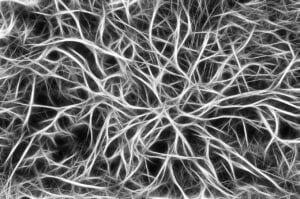Guillain-Barré Syndrome (GBS)
What is Guillain-Barré syndrome?
Guillain-Barré syndrome (GBS) causes the immune system to attack the peripheral nervous system. The condition, affecting approximately one in 100,000 people, is unpredictable in cause, severity, and recovery.
What causes Guillain-Barré syndrome?
Scientists know the that the immune system attacks the myelin sheath of peripheral nerves, causing Guillain-Barré syndrome. However, scientists still don’t know why the immune system begins attacking the nervous system or why the syndrome surfaces in certain people, since, at this point, GBS appears to affect people of both sexes and all ages.
Even so, scientists have noticed that GBS usually follows a viral infection, particularly respiratory or gastrointestinal.
What are the symptoms of Guillain-Barré syndrome?
The symptoms of GBS usually start with tingling and weakness in the legs, intensifying and spreading into the arms and torso as the disorder progresses.
The most severe cases of GBS result in near-complete paralysis, and this is when the syndrome becomes life-threatening, possibly affecting breathing, heart rate, or blood pressure.
GBS symptoms can intensify rapidly, and on average, patients reach their most significant level of weakness in a matter of weeks.
Recovery is not always as quick, lasting anywhere from weeks to years. Though most affected by GBS do recover, around 30 percent still experience weakness after three years.
How is Guillain-Barré syndrome diagnosed?
Because the cause of GBS is unknown, doctors diagnose the syndrome through its symptoms and signs.
This must be done carefully, however, since the symptoms of GBS can also characterize other disorders. What helps? Doctors can look for symptom patterns specific to GBS.
A nerve conduction velocity (NCV) test or a spinal tap can also provide doctors with more information to help diagnose GBS.
Are there any treatment options for Guillain-Barré syndrome?
Currently, the syndrome has no cure, but certain therapies and treatments can combat severity and encourage recovery, such as:
- Plasmapheresis (plasma exchange): In this process, which can lessen the syndrome’s severity, blood is drawn and processed so as to separate blood cells from plasma. The cells are then re-introduced to the body, and the body replaces the missing plasma.
- High-dose immunoglobulin therapy: This therapy sends immunoglobulins (antibodies) into the body in high doses through IV injection and has been found to mitigate the attack against the nervous system.
A significant aspect of treating GBS involves combating complications. This can involve use of machinery, like ventilators or heart monitors, to maintain body function as the nervous system recovers.
Scientists are working toward better treatments and therapies, as well as continuing the search for the syndrome’s cause.
Where can I find more information on Guillain-Barré syndrome?
Guillain-Barré Syndrome (GBS) Articles

Rare Paralytic Disease GBS Emerges as New Threat Amid Gaza Humanitarian Crisis

Positive Results from the Phase 3 Trial of ANX005 in Guillain-Barré Syndrome

Sufjan Stevens Shares Guillain-Barré Syndrome Diagnosis Prior to New Album Release

Man Recovering from GBS Returns to Hospital to Thank His Nurses






